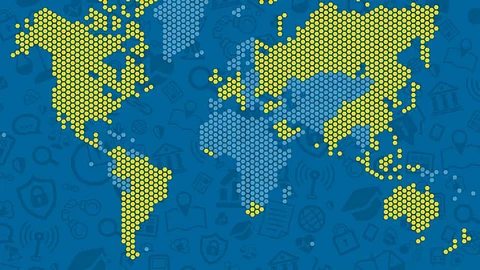Big Data Analysis Benefits and Use Cases Across Government Sectors

Apart from disrupting technological industries, big data has a significant impact on economic development which is why it has been extensively used by government and public sectors. The government sectors leverage big data and data-related technologies to better understand the growth prospects of a country owing to economic aspects influenced by technological upgradations.
The government can unlock key information, improve transparency and efficiency in public management by implementing big data. Through its implementation, they can also avail its benefits – enhancing the way they utilize IT, discovering new capabilities and services, understanding correlations and trends in underlying data, and improve decision making.
As noted by Intellectyx, here the significant benefits served by big data across the government sector.
• Through big data, the government can step into quick and improved decision making while unleashing the insights data has to offer. Processing the generated real-time data, public sectors can avoid guesswork and work with evident information.
• Using big data tools, they can further enhance the productivity and efficiency to find information, make informed decisions, and have better service delivery.
• The technology can also improve transparency and cost reduction while providing pre-filled forms using citizen data.
• It can also speed up the processing time and reduce errors in the collected information.
• The most significant benefit of big data across government sectors in eradicating fraud. Moreover, public sector organizations can remove internal waste by identifying discrepancies.
• The state government can avail the advantages of big data in locating crimes and other illegal activities that pose a security threat in society. The technology can also assist local and state governments to work jointly in reducing criminal activities.
• However, the primary architecture of big data supports the optimized use of IT systems and enhances the analysis of financial activity. Government agencies can take advantage of such architecture to consolidate their data and analysis tools in order to immensely reduce infrastructure and operational costs.
• The predictive nature of big data analytics tools can help model the scenarios regarding the data and hence improve mission outcomes.
• Making the use of the technology will enable the government to respond to hazardous natural disasters, detect health issues, prevent water scarcity problems, and coordinate thousands of displaced people.
Use Cases of Big Data Across Government Sector
Various governments all across the world are using big data and analytics to benefits the socio-economic structure of their respective nations. Here are some of the use cases of the technology in the government sector worldwide.
The National Oceanic and Atmospheric Administration (NOAA) collects data from sea, land, and space-based sensors in order to predict incoming hurricane or tornado and other calamities. NOAA uses a big data approach to gather and analyze large amounts of data to come up with the right information.
NSA utilizes Accumulo, which is an open-source project designed by the NSA in order to use the ability to store data in large tables to boost easy access to information and enhance security. This is done to investigate various details while preventing access to information avoiding personal information leaks.
The US Bureau of Financial Crimes Enforcement Network (FinCEN) in the treasury department employs technology as an analysis tool to collect and analyze a large number of bank transactions which subsequently helps in keeping a check on money laundering, financing terrorism, and other illegal activities.
To ensure cybersecurity, the Department of Homeland Security (DHS) leverages a system of intrusion detection for sensors that possess the capability to analyze internet traffic in and out of Federal systems besides detecting malware and unauthorized access attempts.
The California Natural Resources Agency (CNRA) has implemented Big Data analysis to enable protecting, restoring, and managing the state's historical, natural, and cultural resources for future generations.
.png)

